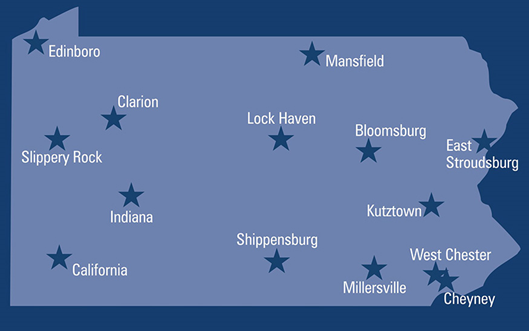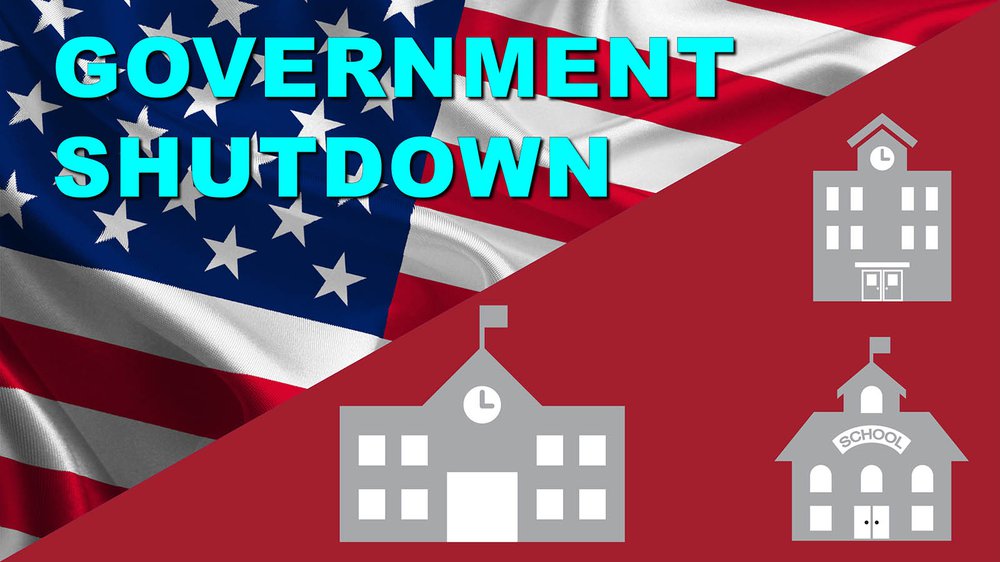How the Shutdown Is Starting to Impact Schools - Denisa R. Superville, Education Week
More than three weeks into what's now the longest federal government shutdown in history, school district officials are making plans to cope with the impacts on students, families, and their own operations should it drag on.
The current closure is different from earlier shutdowns because the agencies from which school districts receive critical federal dollars—chiefly the department of education—are funded during the partial shutdown.
But there is still a lot at stake for school districts if the shutdown persists for months—as President Trump had threatened during a meeting with Democratic congressional leaders earlier this month.
The biggest concern right now is the National School Lunch Program, which is administered through the Department of Agriculture and served more than 30 million children in 2016. The USDA said that it has enough money for reimbursements for the program, which provides free-and-reduced-price lunches to low-income children, through March.

Pa. State System’s redesign plan would allow students to take a course at any of its schools – By Jan Murphy, Penn Live
The day is coming when students enrolling in one of the state’s 14 public universities will be able to take any one of the more than 11,000 courses offered at any of the universities in the State System of Higher Education.
And that day is not too far off.
The system’s board on Wednesday adopted a framework for reinventing itself to operate on a multi-university regional or statewide basis while preserving each of the 14 universities. It also affirmed a plan for next steps to begin to put its transformation into action on an aggressive time schedule especially for higher education where change generally comes at a slow pace.
“We’re on our way. We’re out of the starting box,” said system board Chairwoman Cynthia Shapira after all board members in attendance cast an affirmative vote to accept the framework and related actions.
While the system’s redesign plan is complex and requires a willingness to change, system officials see it as not only a way to make the system sustainable to serve the commonwealth and its workforce needs going forward but also a way to expand opportunities for students.
These changes come not by choice but by necessity.
The financial health of its universities are declining as they struggle with competition for a shrinking pool of high school graduates, rising tuition that is driving away low- and middle-income class families, and state funding that hasn’t kept up with its rising costs.

Some lawmakers pushing to bring shop class back to school – From KKTV
State lawmakers want to bring shop class back to Colorado schools. We’re not talking about your father’s shop class.
Instead of birdhouses, they’re building real houses at Green Mountain High School in Lakewood. The school incorporates shop class into math class.
Sophomore Saranya Jones told CBS4 in Denver that she never dreamed algebra class would entail using power tools.
“You have to do actual math to figure out ‘Okay, so this is where this is supposed to be. This is the angle it’s supposed be at.'”
Scott Burke heads up the program that’s become the envy of school districts across the state and possible answer to the construction industry’s prayers.
“One of things missing in many high schools all throughout the country is the hands-on application of answering the age-old question, especially in math, of, 'When am I ever going to need to know how to use this?'” he said. “With this, you’re able to get students engaged at a much earlier level -- during that eighth, ninth, 10th-grade year -- to spark some interest in them.”

New SC bill would require a finance class to graduate high school – By Kayland Hagwood, WLTX.com
COLUMBIA, S.C. — A new South Carolina bill could require high school students to pass a personal finance class to graduate.
The bill, proposed by Senator Luke Rankin, would require students to take a half-credit personal finance course with an end-of-year test to pass.
Opponents of the bill say it could add another frustrating layer of testing on teachers. Others wonder why it wasn't required in the first place.
Skills like budgeting, investing and learning how to balance a checkbook are just a few aspects of personal finance you're sure to use once you've crossed the stage, but how many students are truly ready to use them?
"Over half of Americans retiring... they're depending on social security and that's simply not enough," Jim Morris, CEO of SC Economics, said. "They might have a small emergency fund, but they have not saved over the course of their life.... We need to try to get our students at various levels creating a better life for [themselves] ... based on financial decisions and choices."
Morris worked with the state Department of Education, community partners and state educators to make aspects of personal finance more prominent in schools.












